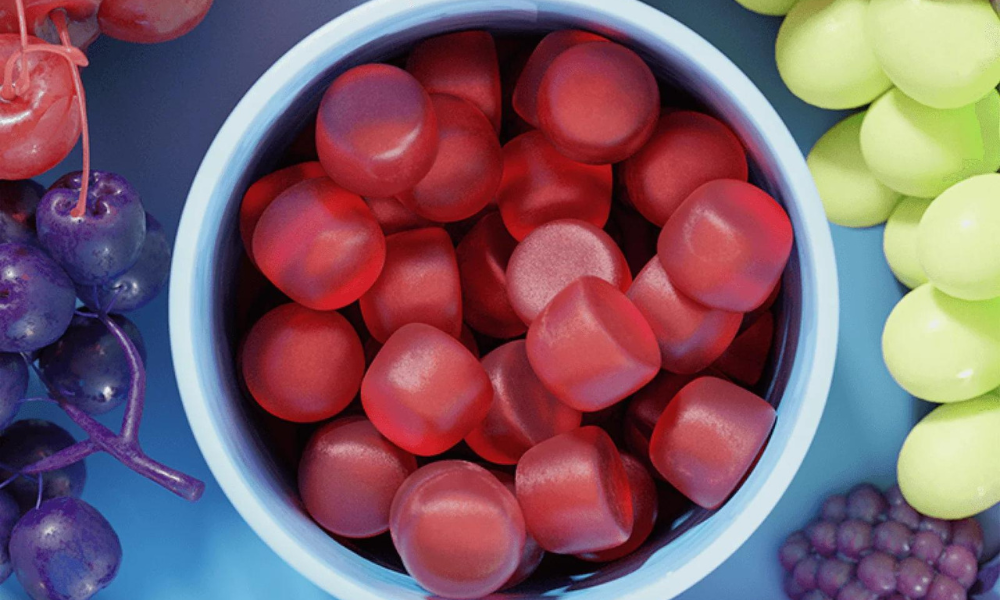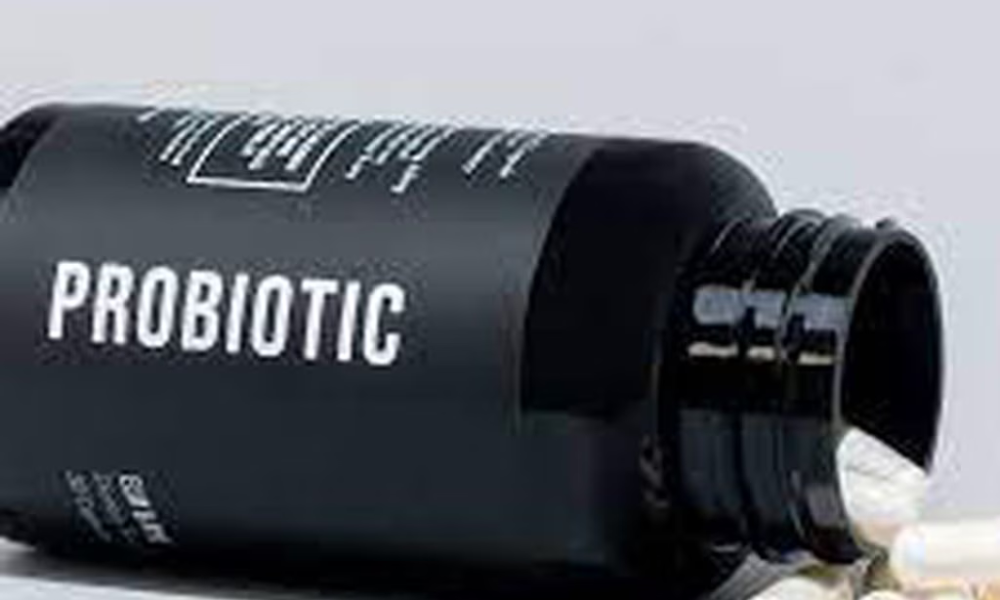Uncover the key to enhancing your child's well-being! Probiotics are the new must-have for parents everywhere. With research showing the incredible benefits of probiotics for teens, it's no wonder parents are eager to give their kids a healthy gut.
But why the sudden surge in interest? Well, for starters, parents are recognizing just how important gut health is to overall well-being. A healthy gut microbiome supports immune function, digestion, nutrient absorption, and even mental health. It's a game-changer!
And let's not forget about the rise in antibiotic use among children. While necessary for fighting infections, antibiotics can sometimes disrupt the natural balance of gut bacteria. That's where probiotics come in. They replenish and restore the good bacteria, bringing harmony back to your child's digestive system.

But it doesn't stop there. Probiotics have also been shown to help with digestive issues and food sensitivities. Parents have seen firsthand the improvements in symptoms like bloating, constipation, diarrhea, and eczema when their kids start taking probiotics. It's a natural and safe solution for supporting digestive health.
And the best part? Probiotic products specifically designed for kids are more accessible than ever. From chewable probiotic tablets to yummy gummies, getting your child to take their probiotics has never been easier. No more resistance or reluctance – it's a win-win!

Understanding Probiotics: What Are They and How Do They Work?
Probiotics, the friendly bacteria and yeasts that reside naturally in our bodies, hold the key to optimal well-being. Found primarily in the gut, these microorganisms play a vital role in maintaining a healthy digestive system by balancing the intestinal flora. But what are they exactly, and how do they work?
When it comes to choosing the best probiotics for your child, it's important to know that not all strains are created equal. Each strain of bacteria offers unique properties and benefits. Some common strains found in probiotic supplements include Lactobacillus acidophilus, Bifidobacterium bifidum, Lactobacillus rhamnosus, and Streptococcus thermophilus. Understanding the advantages of each strain can help you make informed decisions for your child's health.
Types of Beneficial Probiotic Strains for Children
Not all probiotic strains are alike. Here are some notable strains other probiotics known for their astounding efficacy in promoting children's well-being:
Lactobacillus rhamnosus GG (LGG): Extensively studied and proven effective, LGG serves as a powerhouse when it comes to reducing the risk of respiratory tract infections, improving gastrointestinal health, and alleviating symptoms of antibiotic-associated diarrhea.
Bifidobacterium infantis: Perfect for infants and young children, B. infantis plays a crucial role in establishing a healthy gut microbiome from an early age. It aids in digestion, supports immune function, and may even help soothe symptoms of colic.

Lactobacillus acidophilus: Known for its digestive prowess, L. acidophilus is particularly beneficial for children with lactose intolerance. By producing lactase, the enzyme needed to break down lactose, it prevents discomfort and promotes optimal digestive health.
Streptococcus thermophilus: This strain, commonly found in yogurt and fermented dairy products, offers a wealth of benefits. From aiding in lactose digestion to promoting bowel regularity and overall gut health, S. thermophilus is a must-have for your child's well-being.
The Importance of Probiotics for Children
Why are probiotics so important for children? These "good bacteria" naturally reside in the digestive tract, maintaining a balanced gut microbiome that is crucial for proper digestion, nutrient absorption, and immune system function. Here's why probiotics can be a game-changer for your little one:
Enhanced Digestive Health: By assisting in the breakdown of food, supporting nutrient absorption, and preventing constipation, probiotics promote a healthy digestive system.

Strengthened Immune System: Certain strains of probiotics have the ability to enhance the body's natural defense mechanisms against harmful bacteria, reducing the risk of respiratory tract infections, allergies, and autoimmune diseases.
Allergy Prevention: Probiotics have been linked to a reduced risk of allergies and asthma in children. By modulating the immune response, they reduce the likelihood of allergic reactions.
Improved Mental Health: Recent studies suggest that gut health is closely connected to mental well-being. Probiotics may play a role in reducing anxiety, depression, and ADHD symptoms in children.
Optimal Nutrient Absorption: With their ability to break down complex carbohydrates and produce essential vitamins like vitamin K and B vitamins, probiotics ensure optimal nutrient absorption.
With these friendly bacteria on your side, your child can thrive in a happy, healthy gut.
Explore the Many Forms of Probiotics: Supplements, Foods, Beverages, and Gummies!
Supplements: Find the Perfect Fit
Discover the popular and convenient world of probiotic supplements. Available in tablet, capsule, or powder form, these supplements offer specific strains of bacteria or yeast that have been studied for their health benefits. With easy consumption and accurate dosage, they cater to your needs and preferences.

Foods: Delicious and Nutritious
Satisfy your taste buds while promoting gut health with natural and fermented foods rich in probiotics. Enjoy yogurt, kefir, sauerkraut, kimchi, and tempeh, which naturally contain live bacteria or yeast cultures. Incorporating these tasty options into your diet is a delightful way to reap the benefits of probiotics.
Beverages: Refresh and Revitalize
Quench your thirst and boost your gut health with probiotic beverages like kombucha and certain teas. Experience the tangy and flavorful delight of kombucha, a naturally carbonated fermented tea that contains living cultures of bacteria and yeasts. Discover a refreshing way to introduce probiotics into your daily routine.
Gummies: Enjoyable and Convenient
If swallowing pills isn't your thing or you're seeking a more palatable option, probiotic gummies are a perfect choice. These chewable treats come in various flavors and contain live bacteria strains that support digestive health and immunity. Indulge in a tasty and convenient way to take care of your gut.
Unleash the Benefits of Each Form
Tablets and Supplements: Concentrated and Powerful
Get a concentrated dose of specific strains of bacteria or yeast with probiotic tablets and supplements. Designed to survive the stomach's acidic environment, they reach the intestine to exert their beneficial effects. Support gut health, improve digestion, strengthen immunity, and potentially alleviate digestive disorders.
Probiotic Foods: Nature's Bounty
Nourish your gut with a diverse range of microorganisms found in probiotic-rich foods. From yogurt to lactobacillus strains, regular consumption promotes a healthy gut microbiota, aids digestion, and may reduce the risk of gastrointestinal conditions.

Probiotic Beverages: Revive Your Gut
Discover the probiotic power of kombucha and its ability to restore and maintain a healthy gut microbiome. Boost your immunity and aid in detox processes by choosing kombucha brands that contain live cultures and are low in added sugars.

Probiotic Gummies: Fun and Functional
Experience a convenient and enjoyable way to consume probiotics. These gummies, with strains like lactobacillus and bifidobacterium, contribute to a healthy gut flora, support digestion, and strengthen your immune system. Say goodbye to pill struggles and embrace the goodness of probiotic gummies.

Find the Perfect Probiotic for Your Child
Choosing the right probiotic supplement for your child shouldn't stress you out. Follow these tips to make an informed decision:
Match the Strain: Different probiotic strains have different benefits. Figure out what your child needs and find a probiotic that aligns with those goals. For example, Lactobacillus rhamnosus GG boosts the immune system, while Bifidobacterium lactis eases digestive discomfort.
Count the CFUs: The number of live microorganisms in each dose is measured in colony-forming units (CFUs). Higher CFU counts mean a more powerful product, but be sure to follow the recommended dosage for your child's age.

Keep It Fresh: Look for probiotics in dark, opaque containers to protect the live bacteria from light and moisture. Check the expiration date to make sure the product is still good. Some probiotics need refrigeration, while others can be stored at room temperature. Choose what works best for your lifestyle.
Know Your Ingredients: Read the product label carefully. A good probiotic supplement should be free from artificial colors, artificial flavors, and unnecessary additives. Look for ones that also include prebiotics, which help nourish the beneficial bacteria, and provide overall health benefits.
Do Your Research: Take the time to dig deep and read reviews from reliable sources or other parents. Their experiences can give you valuable insights on how effective and well-tolerated a probiotic is.
Go for Combo Power: Some probiotic supplements combine different strains for a wider range of benefits. These combos can be great for overall digestive health and immune support.
Remember, every child is unique. What works with probiotic for kids in one may not work for another. Watch how your child responds to the probiotic supplement and make changes if needed. If you're unsure, consult a healthcare professional who can give personalized advice based on your child's needs and medical history.
Tips for Administering Probiotics to Children

Administering probiotics for kids can sometimes be challenging, but these tips may help:
1. Choose a Form Your Child Prefers: Probiotic supplements come in various forms, including
chewable tablets, powder, gummies, or liquid. Select a form that your child
finds easy to take and enjoyable.
2. Incorporate Probiotic-Rich Foods: Encourage the consumption of naturally probiotic-rich foods, such as yogurt, kefir, sauerkraut, and kombucha. These can be a delicious and nutritious way to introduce probiotics into your child's diet.
3. Set a Routine: Establish a consistent time for taking probiotics, such as before breakfast or bedtime. Having a routine can help make it a regular habit.
4. Mix with Food or Drink: If your child has difficulty swallowing tablets or capsules, consider mixing the probiotic powder with a small amount of food or drink. However, avoid using hot liquids, as high temperatures may affect the viability of the live bacteria.
5. Lead by Example: Take probiotics yourself to demonstrate the importance and normalize the practice best probiotics for kids and your child.
Proper Storage for Maximum Effectiveness
To ensure the potency and effectiveness of probiotics, proper storage is essential:
1. Refrigeration: Some probiotics require refrigeration to maintain their viability. Check the product label or packaging instructions to determine if refrigeration is necessary. Remember to keep the probiotics away from the freezer compartment to prevent freezing.
2. Room Temperature Storage: If the probiotics do not require refrigeration, store them in a cool, dry place away from direct sunlight and moisture. Avoid storing them near heat sources, such as stoves or ovens.
3. Follow Manufacturer Instructions: Always follow the specific storage guidelines provided by the manufacturer to optimize the shelf life and effectiveness of the probiotic supplement.

Frequently Asked Questions about Choosing Probiotics for Children
Are probiotics safe for children?
Probiotics are generally safe for children, but it's important to choose age-appropriate strains and consult with a healthcare professional before starting any supplements.
At what age can I start giving my child probiotics?
Probiotics can be introduced to children of all ages, including infants. However, specific strains and dosages may vary depending on the child's age and individual needs.
How do I know which probiotic strain is the best probiotic for my child?
Different probiotic strains offer different benefits. Consult with a healthcare professional who can assess your child's specific needs and recommend the most suitable strain.
What are CFUs, and how many does my child need?
CFUs (colony-forming units) indicate the amount of viable bacteria in each dose. The appropriate CFU count for your child will depend on their age and health condition. Healthcare professionals typically recommend between 1-10 billion CFUs per day for children.
Can I give my child probiotics if they have food allergies or sensitivities?
In most cases, probiotic supplements are safe for children with allergies. However, it's essential to check the product labels for potential allergens and consult with a healthcare professional if you have concerns.
Should my child take probiotics daily or intermittently?
Consistency is key when it comes to reaping the benefits of probiotics. It's generally recommended to take them daily to maintain a healthy balance of gut bacteria.
Can I give my child probiotics while they are taking antibiotics?
Yes, probiotics can help replenish the beneficial bacteria that antibiotics may deplete. However, it's important to consult with a healthcare professional for specific recommendations on timing and dosage.
Are there any side effects of giving probiotics to children?
Probiotic strains are generally well-tolerated, but some children may experience minor digestive discomfort or temporary changes in bowel movements. If you notice any concerning symptoms, consult with a healthcare professional.
Can probiotics replace a healthy diet for my child?
Probiotic supplements are not a substitute for a balanced diet. While they can support digestive and immune health, it's crucial to provide your child with a nutrient-rich diet that includes a variety of fruits, vegetables, and other wholesome foods.
How long should my child take probiotics?
The duration of probiotic supplementation will vary depending on your child's needs. Some children may benefit from long-term use, while others may only require short-term support. Consult with a healthcare professional for personalized guidance.

Final Thoughts
When it comes to picking the perfect probiotic for your child, there are some important factors to keep in mind. Make sure to consider the specific strains, the number of CFUs, how probiotic strains are packaged, transparency in ingredients, and read those reviews!
It's always a good idea to consult with a healthcare professional and keep an eye on how your child responds to the probiotics. By following the right ways to take the supplement and storing it correctly, your child will get the most out of their probiotic boost. And remember, a healthy diet and lifestyle choices are just as crucial for your child's overall well-being.
References
Geisinger – “The pros and cons of probiotics for kids” https://www.geisinger.org/health-and-wellness/wellness-articles/2018/02/09/13/53/the-pros-and-cons-of-probiotics-for-kids
WebMD - "Are There Health Benefits of Probiotics for Children” https://www.webmd.com/children/are-there-health-benefits-of-probiotics-for-kids
Caring for Kids - "Probiotics and children” https://caringforkids.cps.ca/handouts/healthy-living/probiotics-and-children
National Library of Medicine - "Probiotics in Children: What Is the Evidence?" https://www.ncbi.nlm.nih.gov/pmc/articles/PMC5636929/








